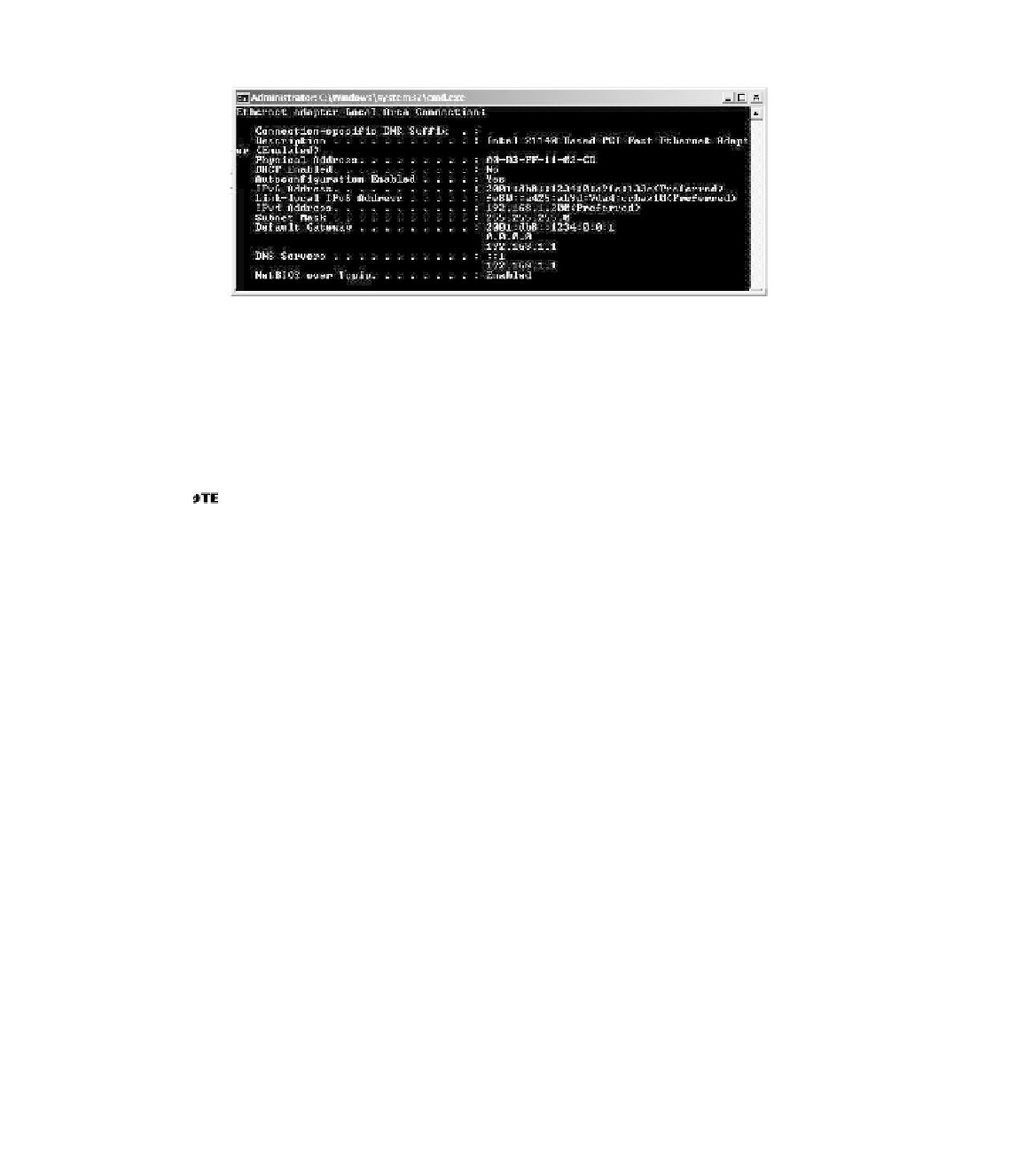Information Technology Reference
In-Depth Information
fIgure 8.15
IPv6 configuration as seen from the command prompt
IPv6 Address Types
As stated earlier, there are three types of addresses in IPv6: anycast, unicast, and multicast.
A description of each of these types of IPv6 addresses follows.
Note the absence of the broadcast type, which is included in IPv4. You can't
use broadcasts in IPv6; they've been replaced with multicasts.
Anycast Addresses
Anycast addresses are not really new. The concept of anycast existed
in IPv4 but was not widely used. An
anycast address
is an IPv6 address assigned to multiple
devices (usually different devices). When an anycast packet is sent, it is delivered to one of
the devices, usually the closest one.
Unicast Addresses
A
unicast packet
uniquely identifies an interface of an IPv6 device. The
interface can be a virtual or pseudo-interface or a real (physical) interface.
Unicast addresses come in several types, as described in the following list:
Global Unicast Address
As of this writing, the global unicast address space is defined as
2000:: /3. The 2001::/32 networks are the IPv6 addresses currently being issued to busi-
ness entities. As mentioned, Microsoft has been allocated 2001:4898:: /32. A Microsoft
DHCPv6 server would be set up with scopes (ranges of addresses to be assigned) within
this address space. There are some special addresses and address formats that you will
see in use as well. You'll find most example addresses listed as 2001:DB8:: /32; this space
has been reserved for documentation. Do you remember the loopback address in IPv4,
127.0.0.1? In IPv6 the loopback address is ::1 (or 0:0:0:0:0:0:0:0001). You may also see
an address with dotted-decimal used. A dual-stack Windows Server 2012 machine may
also show you FE80::5EFE:192.168.1.200. This address form is used in an integration/
migration model of IPv6 (or if you just can't leave the dotted-decimal era, I suppose).
Link-Local Address
Link-local addresses are defined as FE80:: /10. If you refer to
Figure 8.15 showing the
ipconfig
command, you will see the link-local IPv6 address
as fe80::a425:ab9d:7da4:ccba. The last 8 bytes (64 bits) are random to ensure a high





















Search WWH ::

Custom Search